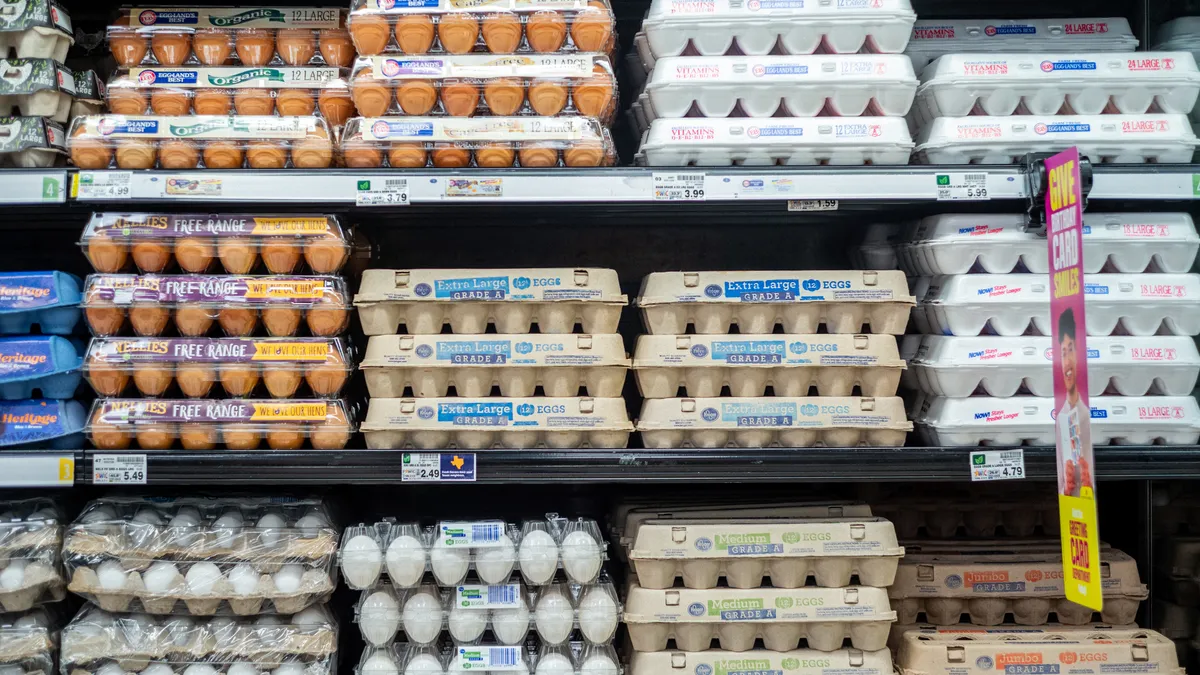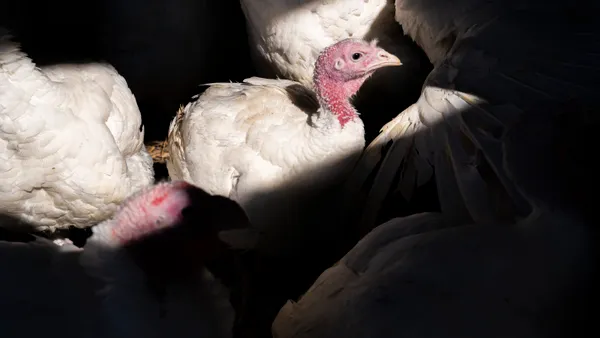Dive Brief:
-
Egg prices are back on the rise as a devastating bird flu outbreak and swelling consumer demand eats into supply.
-
Wholesale egg prices surpassed about $3 per dozen in August, according to the U.S. Department of Agriculture, up from the usual $1 to $2 range. Retail egg prices were up 19% in August compared to last year, according to the latest Consumer Price Index data, while the broader grocery category increased only 1%.
-
Marc Dresner, director of communications for the American Egg Board, said highly pathogenic avian influenza, or bird flu, has forced egg supplies to be “less robust than normal.” At the same time, U.S. sales have jumped to levels not seen since the pandemic.
Dive Insight:
Wild swings in egg prices have roiled the market over the past few years: After hitting a record at the end of 2022, prices crashed before climbing again at the end of last year.
Despite the price fluctuations, consumers continue to buy eggs — and more of them, as of the last few months. August egg sales were up more than 5% compared to 2023, and producers sold 237 million eggs in the most recent four-week period, Dresner said, citing Nielsen data.
“We haven’t seen that number since the first year of COVID,” he said, when sales soared as consumers stocked up on staples including eggs and toilet paper.
As domestic demand stays strong, other countries are also buying more U.S. eggs. According to the U.S. Egg Export Council, total exports for the first four months of the year increased by 22% to 63.5 million dozen eggs, though values were down 22%.
Demand is expected to rise further during the fall and winter months with the holiday baking season entering full swing. That could further pressure the commercial egg supply, especially as bird flu also spreads more easily in colder climates.
Approximately 18.7 million egg laying hens and pullets across seven states have died as a result of the avian virus since the start of the year, according to the USDA. Cal-Maine Foods, the largest U.S. egg producer, temporarily halted production at one of its Texas plants after detecting bird flu.
After two years of the current outbreak, producers have been able to better respond to the threat of bird flu and are "now recovering faster than ever when they are impacted," Dresner said. Still, rebuilding flocks takes time.
"Farmers are doing everything they can to protect their flocks from disease and keep the eggs coming," Dresner said. "We are definitely not letting our guard down when it comes to bird flu.”











